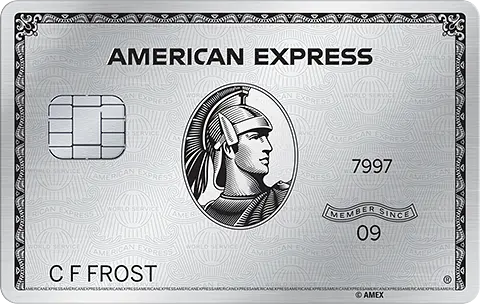Ok, if you’ve ever rented a car, you know the drill. You’re at the counter, you’ve just gotten off a long flight, and now the agent is asking if you’d like to add on collision coverage for “just” $20 to $30 a day. In the moment, it’s tempting to just say yes and move on, but your credit card might already give you that protection for free.
Credit card rental car insurance (also known as Auto Rental Collision Damage Waiver, or CDW) is one of those non-flashy perks that can actually save you serious money (and headaches). It can cover damage or theft to your rental without you paying extra at the counter, and in some cases, it even steps in before your personal auto insurance.
But your coverage depends on the card in your wallet, how you book, what car you rent, and even where you’re driving. Let’s look at how it all works, which cards are best for this sort of thing, and what to watch out for before you hit the road.
What Is Credit Card Rental Car Insurance?
At its core, credit card rental car insurance is protection against damage or theft of your rental vehicle when you pay with your card and decline the rental company’s collision coverage. The coverage comes through the card’s benefits package, not the rental agency, and can save you anywhere from $15 to $30 per day.
The official term is Auto Rental Collision Damage Waiver (CDW), and it acts as a substitute for the CDW/LDW (loss damage waiver).
It doesn’t mean you’re bulletproof, since CDW only covers the rental vehicle itself — not injuries, liability to others, or personal belongings in the car. I feel like such a grown-up talking about these things… don’t you? 🤩
Not all rental coverage is the same. The key difference is whether your credit card offers primary or secondary coverage:
Primary coverage works without touching your personal auto insurance. That means if you ding a rental bumper or your car gets stolen somewhere, your card benefit handles the claim. Your personal policy is untouched.
Secondary coverage only kicks in after your personal auto insurance pays. That can still be useful, since it might cover deductibles or extra fees, but you’ll need to involve your insurer, which can lead to higher premiums down the line.
👉 Pro Tip: If you don’t have personal auto insurance (like maybe you live in a city without a car), many secondary policies act as primary because there’s no other insurer to fall back on, but they may have stricter limits.
What’s Covered (and What’s Not)
What’s Usually Covered
Most credit card CDW policies cover:
Collision damage and theft — whether you back into a pole or the car gets stolen, the card usually covers repair or replacement costs.
Loss of use — if the rental agency can’t rent the car while it’s being fixed, many cards cover the daily “loss of use” charges they bill you.
Towing charges — reasonable towing fees related to a covered accident are often included.
In reality, this means that if you scrape a car in a parking garage or your rental gets stolen, your card’s coverage can save you from a crazy expensive bill.
What’s Usually Not Covered
Credit card rental insurance does not replace full auto insurance. Common exclusions include:
Liability coverage — damage to other cars or property, or injuries to other people, are not covered. You’d need personal auto insurance (or separate liability coverage) for that.
Certain car types — exotic cars (think Lamborghini, Ferrari, Bentley), antique cars, motorcycles, and large trucks are usually excluded.
Extended rentals — most policies only cover rentals up to 30 days.
Countries with restrictions — a few countries (like Ireland, Italy, Israel, and Jamaica) have historically been excluded, though some issuers have chilled out on this. Always check your card’s benefit guide before renting.
Best Credit Cards for Rental Car Insurance
Tons of cards offer rental car coverage, but only a handful provide primary coverage (the best kind). Here are some top picks for y’all:
Cards With Primary Coverage
Card | Coverage Type | Key Notes | Annual Fee |
Primary (personal rentals) | Strong travel card, primary coverage in most countries | $95 | |
Primary | Premium perks and travel protections, great for frequent renters | $795 | |
Primary | Earn 2x on all purchases and lounge access | $395 | |
Primary (especially abroad) | Airline card that covers rentals in most countries | $0 intro annual fee in the first year, then $150 | |
Primary (business rentals) | Business-focused, solid earnings, and protections | $95 |
Cards With Secondary Coverage
These won’t always keep your personal insurance totally out of the picture, but they can still save you money by covering deductibles or gaps. I know, I know… big girl words. 💅
Card | Key Notes | Annual Fee |
Luxury travel benefits; can upgrade to primary via Premium Car Rental Protection. | $895 (rates and fees) | |
Good mid-tier card; includes collision/theft; Amex add-on option for primary coverage. | $325 (rates and fees) | |
Same general rules as personal Platinum Card®; great if you’re renting for work. | $895 (rates and fees) | |
Covers damages due to theft or collision | Annual Fee: $95 |
Should You Rely on Credit Card Rental Car Insurance?
In most cases, yes, you should rely on these cards, especially if you have at least one card with primary coverage in your wallet. It saves you money on rental fees, protects your personal insurance record, and just gives you peace of mind.
But it’s not a replacement for auto insurance. If you cause an accident that injures someone or damages another vehicle, your card’s CDW won’t help. That’s why it’s important to understand what’s covered and decide if you need other liability coverage.
Bottom Line
Credit card rental car insurance is one of the most underrated travel perks out there. It won’t get as much love as a lounge visit or a free hotel breakfast, but when something goes wrong, it could save you thousands.
My best advice? Keep one card with primary coverage ready for every rental, and know the fine print before you drive off.












